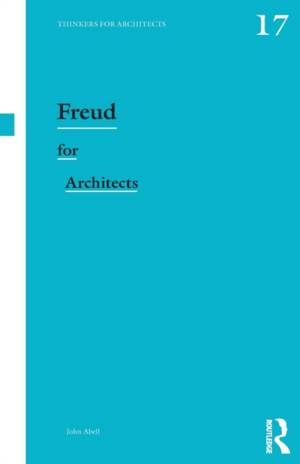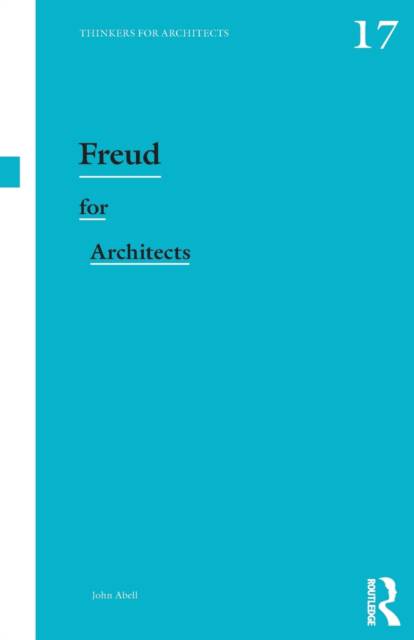
- Afhalen na 1 uur in een winkel met voorraad
- Gratis thuislevering in België vanaf € 30
- Ruim aanbod met 7 miljoen producten
- Afhalen na 1 uur in een winkel met voorraad
- Gratis thuislevering in België vanaf € 30
- Ruim aanbod met 7 miljoen producten
Omschrijving
Freud for Architects explains what Freud offers to the understanding of architectural creativity and architectural experience, with case examples from early modern architecture to the present.
Freud's observations on the human psyche and its influence on culture and social behavior have generated a great deal of discussion since the 19th century. Yet, what Freud's key ideas offer to the understanding of architectural creativity and experience has received little direct attention. That is partly because Freud opened the door to a place where conventional research in architecture has little traction, the unconscious. Adding to the difficulties, Freud's collection of work is vast and daunting. Freud for Architects navigates Freud's key ideas and bridges a chasm between architecture and psychoanalytic theory.
The book highlights Freud's ideas on the foundational developments of childhood, developments on which the adult psyche is based. It explains why and how the developmental stages could influence adult architectural preferences and preoccupations, spatial intuition, and beliefs about what is proper and right for architectural design. As such, Freud for Architects will be of great interest to students, practitioners, and scholars in a range of disciplines including architecture, psychoanalysis, and philosophy.
Specificaties
Betrokkenen
- Auteur(s):
- Uitgeverij:
Inhoud
- Aantal bladzijden:
- 138
- Taal:
- Engels
- Reeks:
Eigenschappen
- Productcode (EAN):
- 9781138390683
- Verschijningsdatum:
- 23/11/2020
- Uitvoering:
- Paperback
- Formaat:
- Trade paperback (VS)
- Afmetingen:
- 140 mm x 213 mm
- Gewicht:
- 204 g

Alleen bij Standaard Boekhandel
Beoordelingen
We publiceren alleen reviews die voldoen aan de voorwaarden voor reviews. Bekijk onze voorwaarden voor reviews.











